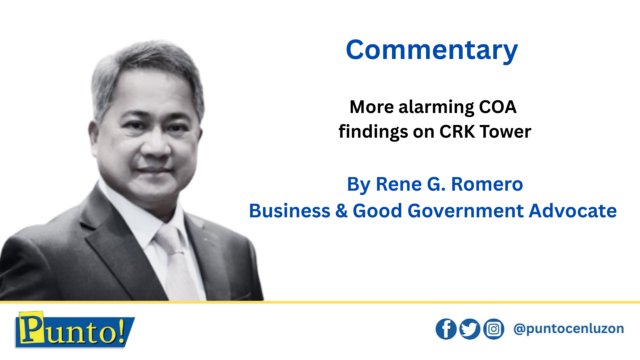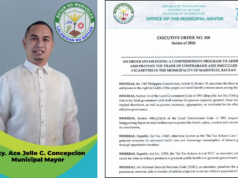THE RECENT findings of the Commission on Audit regarding the construction delays and irregularities surrounding the New Clark Air Traffic Control Tower are deeply troubling and warrant urgent accountability.
As revealed in Audit Observation Memorandum No. 2025-013, the project suffered significant setbacks due to the absence of a Height Clearance Permit (HCP) from the Civil Aviation Authority of the Philippines (CAAP)—a basic regulatory requirement that should have been secured even before the first phase of construction.
It is inconceivable that a project of such national importance, situated within the aviation hub of Central Luzon, was allowed to proceed without the proper aeronautical and engineering assessments. The delay in obtaining the HCP—issued only in March 2024, more than two years after the original target completion date of January 2022—reveals a gross failure in project planning, inter-agency coordination, and due diligence on the part of the Clark International Airport Corp. and its private partner, Luzon International Premiere Airport Development (LIPAD) Corp.
What makes this situation even more alarming is the COA’s finding that CIAC disbursed millions of pesos in advance payments to contractors, despite the lack of actual physical work on-site.
These payments, made on the basis of premature billing statements and certified by CIAC officials, represent not only financial mismanagement but also raise the possibility of corruption and abuse of public funds.
The project’s budget has since ballooned to ₱354 million—₱63 million more than its original approved cost—without any corresponding progress or public explanation.
Furthermore, the lack of approved aeronautical studies, the absence of a finalized redesign of Instrument Flight Procedures, and the non-submission of mitigating action plans all point to serious lapses in oversight, compliance, and governance.
We call on the Department of Transportation, the Office of the President, and relevant oversight bodies to investigate these findings thoroughly and identify those responsible.
Administrative sanctions and legal action must be pursued where warranted.
Public infrastructure, particularly one related to aviation safety and national connectivity, must never be treated with recklessness or impunity.
This incident must serve as a wake-up call to reform our processes in infrastructure planning, procurement, and compliance monitoring.
Government agencies, private partners, and regulatory institutions must be held to the highest standards of professionalism and public accountability.
Anything less is a disservice to the Filipino people—and a betrayal of their trust.





